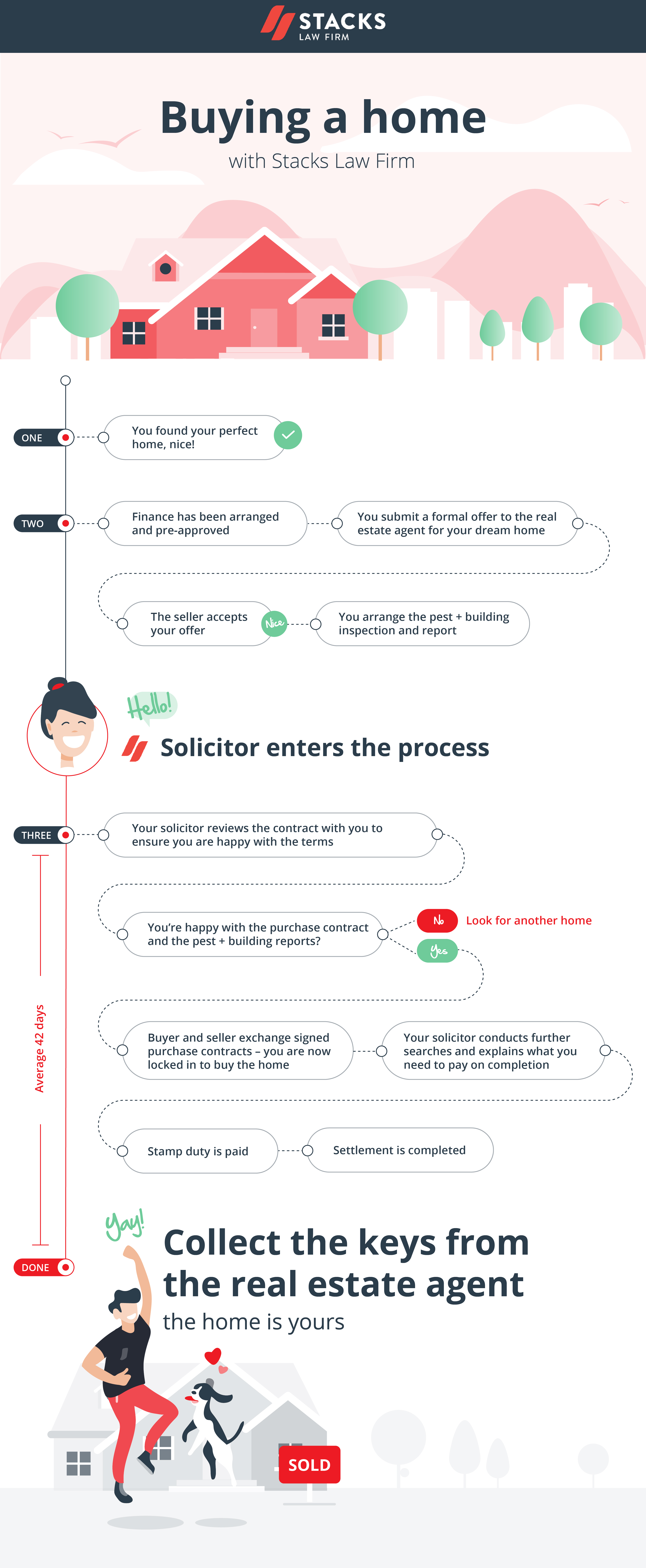Buying a new home or a property can be one of the most exciting events of your life. In an ideal world it would be as easy as simply finding the money, paying the owner and receiving the title of the property.
Unfortunately, however, there are all sorts of pitfalls and possible traps that can appear during the property settlement process, and as your home is likely to be the biggest investment of your life, it is wise to get reliable legal advice to protect your interests. Having a lawyer represent you ensures that someone has your back should you encounter any problems during settlement.
Whether you are buying a house, flat or rural property, usually your first point of contact is your real estate agent. Once you have found the right property, then you can see your bank or financial institution to obtain conditional approval to make an offer on your new home.
If the finance is approved, then you can make an offer. If your offer is accepted, you can provide the real estate agent with your solicitor's contact details so that they can let the current owner of the property know where to send the contract for sale.
Once your solicitor has the contract for sale, they will arrange to review it with you, either in person, over the phone or in writing.
Your solicitor will advise you on any specifics of the contract, such as easements affecting the land. Your solicitor will also advise you to obtain a pest and building report before exchanging contracts , to help avoid problems such as contamination latent or patent defects and any difficulty or ambiguity related to council approval.
Once you are happy with the contract and what you are buying, and you have unconditional approval from your bank or financial institution, then you can exchange contracts.
Usually, it will be 42 days from the date of exchange of contracts to the date you settle or collect the keys for your new home. During that time, your solicitor works with the outgoing financial institution and the incoming financial institution to arrange for the money to be paid and paperwork to be done.
The solicitor for the buyer and the solicitor for the seller work together to do further searches on the property. They work out the adjustments on things like council rates and water to be paid out by the seller and paid at settlement by the buyer.
Your solicitor will tell you how much stamp duty you need to pay and where to pay it, and will also liaise with you and your financial institution about how much money you need to pay at settlement.
Your solicitor will require you to show some identification documents and sign some authorisation forms to complete the conveyancing transaction on an online platform called PEXA.
Once all the paperwork is done by your lawyer, settlement takes place. You can then get the keys from the real estate agent and enjoy your new home!

The content of this article is intended to provide a general guide to the subject matter. Specialist advice should be sought about your specific circumstances.

